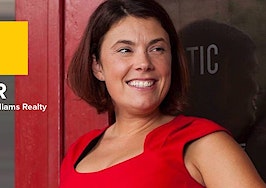Takeaways:
- Division of labor helps makes agent teams sing.
- Team leaders must create the systems and expectations to achieve success.
- Communication is key to a thriving team.
SAN FRANCISCO — Walk into a doctor’s office. You see a receptionist; an assistant checks your blood pressure; the doctor comes in for 10 minutes and refers you to an internist to check on that weird pain in your stomach.
This division of labor works for real estate, Keller Williams Realty CEO Chris Heller said on a panel on agent teams at Inman Connect San Francisco.
Heller has a team in San Diego who will participate in approximately 200 transaction sides and $100 million in sales this year. Thanks to his team, his business hums along without him as he oversees the huge brand at its headquarters in Austin, Texas.
Three team leaders joined him on the panel: Jacky Teplitzky, who runs a six-agent team at Douglas Elliman Real Estate in New York City; Dina Landi, who helps lead a team at an independent firm near Santa Barbara, California; and Sejal Binnings, who runs a three-agent team at Pacific Union Real Estate.
Heller received a call the other night from a person whose house he helped sell in 1991 and was looking to use him again. “Great,” he said, “either me or my partner will be in touch.” It would be his partner.
The other panelists did not have the same set-it-and-forget-it relationship to their teams: Their work lives are all-consuming. But they emphasize that the division of labor helps them kill it in ways they wouldn’t be able to otherwise.
“How can one person do everything?” Teplitzky said. In the Type A Manhattan world, clients need a lot of hand-holding.
She hands that duty off to her team, but she vigilantly oversees every transaction and communication. She’s copied on 90 percent of the emails her team has with clients.
That drives her team members batty, but it helps Teplitzky keep fingertips on a transaction’s fluttering pulse.
Binnings and her two agent partners split all duties equally, but they divide those duties according to their strengths.
She and her husband make up one side of the partnership; a third partner makes up the other half. The two sides split commissions and expenses down the middle.
Landi’s team shares one customer relationship platform, where anyone in the office can call forth a record of the last time contact was made with a lead, what was communicated and who on the team handled it.
That interchangeability has been “paramount” to the success of the team, which expects to close between 20 and 30 transactions this year and has achieved a sales volume of $265 million year to date.







